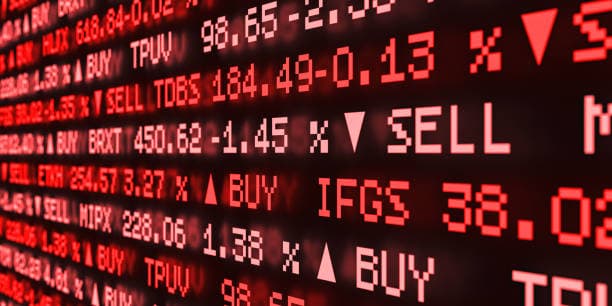Artificial intelligence is revolutionizing the way we interact with the world, and online trading platforms are no exception. The fusion of AI and trading has created a dynamic landscape where algorithms and machine learning are shaping the future of Global Markets. Let’s dive into how AI is transforming the trading experience, making it more accessible, efficient, and profitable for traders worldwide.
AI and the Trading Landscape The world of trading has always been a fast-paced environment, but with the advent of AI, the speed and accuracy of decision-making have reached new heights. AI-powered platforms can analyze vast amounts of data in real-time, providing traders with insights that were previously unattainable. This has led to a significant shift in how Global Markets operate, with AI systems becoming an integral part of the trading infrastructure.
Enhancing Traders’ Decision-Making One of the most significant benefits of AI in trading is its ability to enhance decision-making. By processing and analyzing data at a speed far beyond human capabilities, AI can identify patterns and trends that might be missed by the human eye. This allows traders to make more informed decisions, which can lead to better outcomes in the volatile world of Global Markets.
Personalized Trading Experiences AI is also enabling a more personalized trading experience. By learning from individual trader behavior, AI systems can offer tailored advice and strategies, helping traders to refine their techniques and improve their performance. This personalization is not only beneficial for the trader but also for the platforms themselves, as it increases user engagement and satisfaction.
Risk Management and AI Risk management is a crucial aspect of trading, and AI is playing a significant role in this area. By continuously monitoring market conditions and assessing potential risks, AI can help traders to mitigate losses and protect their investments. This proactive approach to risk management is a game-changer in the world of Global Markets (In Arabic, it is called “اسواق“), as it allows traders to navigate the complexities of trading with more confidence.
The Rise of AI-Powered Trading Bots AI-powered trading bots are becoming increasingly popular in the world of online trading. These bots can execute trades on behalf of the trader, taking the emotion out of the equation and ensuring that trades are made based on data-driven strategies. This automation not only saves time but also reduces the potential for human error, leading to more consistent and reliable trading outcomes.
The Future of AI in Trading The future of AI in trading is bright, with ongoing advancements in technology opening up new possibilities for Global Markets. As AI continues to evolve, we can expect to see even more sophisticated systems that can predict market movements with greater accuracy and offer advanced trading strategies. This will not only change the way we trade but also how we perceive the very nature of Global Markets.
AI and the Democratization of Trading One of the most exciting aspects of AI’s role in trading is its potential to democratize access to Global Markets (In Arabic, it is called “البورصة العالمية“). By providing tools and platforms that are easy to use and understand, AI is making trading more accessible to a wider audience. This democratization is breaking down barriers and allowing more people to participate in trading, regardless of their background or experience level.
The Human Touch in AI Trading While AI is making significant strides in the world of trading, it’s important to remember the value of the human touch. AI systems are tools that can enhance our abilities, but they do not replace the need for human intuition and judgment. The best trading outcomes are often achieved when AI and human traders work together, combining the strengths of both to navigate the complexities of Global Markets.
AI and the Ethics of Trading As AI becomes more prevalent in trading, ethical considerations must also be taken into account. Issues such as data privacy, algorithmic bias, and the potential for market manipulation are all important topics that need to be addressed. The ethical use of AI in trading is crucial to maintaining trust in Global Markets and ensuring that all participants have a fair opportunity to succeed.
Conclusion The integration of AI into online trading platforms is transforming the way we approach Global Markets and Trading. From enhancing decision-making to personalizing experiences and managing risks, AI is playing a pivotal role in shaping the future of trading. As we continue to harness the power of AI, we can expect to see even more innovative solutions that will further revolutionize the way we trade and interact with Global Markets.
















